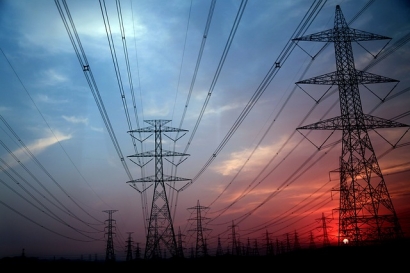
This system will be the first commercial deployment of Form Energy’s proprietary long-duration energy storage system. Form Energy’s aqueous air battery system leverages some of the safest, cheapest, most abundant materials on the planet and offers a clear path to transformationally low-cost, long-duration energy storage. The project with Great River Energy will be a 1-MW, grid-connected storage system capable of delivering its rated power continuously for 150 hours, far longer than the two to four hour usage period common among lithium-ion batteries being deployed at utility-scale today. This duration allows for a fundamentally new reliability function to be provided to the grid from storage, one historically only available from thermal generation resources.
Leading up to the decision to deploy the pilot project, Form Energy conducted a portfolio optimization study of Great River Energy's unique system characteristics with FormwareTM, a proprietary software analytics platform design to help energy planners model future grids. FormwareTM was purpose-built to model high penetration renewables at the system level and determine how all types of storage enable cost-effective renewable energy integration. The tool helps planners reduce exposure to extreme weather events and minimize uncertainty around commodity prices under a variety of future grid scenarios. “In order to understand how best to make the energy transition, new analytical tools are needed, and FormwareTM allowed us to work with GRE to systematically and thoroughly understand the value that our assets can bring to their system”, said Marco Ferrara, SVP Analytics and Business Development for Form Energy.
“Great River Energy is excited to partner with Form Energy on this important project. The electrical grid is increasingly supplied by renewable sources of energy. Commercially viable long-duration storage could increase reliability by ensuring that the power generated by
renewable energy is available at all hours to serve our membership. Such storage could be particularly important during extreme weather conditions that last several days. Long-duration storage also provides an excellent hedge against volatile energy prices,” said Great River Energy Vice President and Chief Power Supply Officer Jon Brekke.
“Our vision at Form Energy is to unlock the power of renewable energy to transform the grid with our proprietary long-duration storage. This project represents a bold step toward proving that vision of an affordable, renewable future is possible without sacrificing reliability” noted Mateo Jaramillo, CEO of Form Energy.
“We are thrilled to have Great River Energy as the first strategic utility partner to deploy Form’s first bi-directional power plant. Their forward-leaning and innovative approach to their grid transition makes them a perfect partner,” said Ted Wiley, president of Form Energy.
Great River Energy announced plans to transition its portfolio of power supply resources in the coming years. The electric cooperative plans to phase out its remaining coal resources, add significant renewable energy, and partner with Form Energy on its grid-scale battery technology.
"Long duration energy storage solutions will play an entirely different role in a clean electricity system than the conventional battery storage systems being deployed at scale today. Lithium-ion batteries are well suited to fast bursts of energy production, but they run out of energy after just a few hours. A true low-cost, long-duration energy storage solution that can sustain output for days, would fill gaps in wind and solar energy production that would otherwise require firing up a fossil-fueled power plant. A technology like that could make a reliable, affordable 100% renewable electricity system a real possibility," said Jesse Jenkins, an assistant professor at Princeton University who studies low-carbon energy systems engineering.
Founded in 2017, Form Energy has raised over $50 million in funding. The company is backed by investors Eni Next LLC, MIT’s The Engine, Breakthrough Energy Ventures, Prelude Ventures, Capricorn Investment Group and Macquarie Capital.

